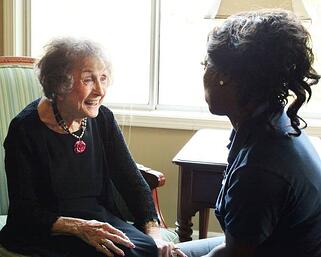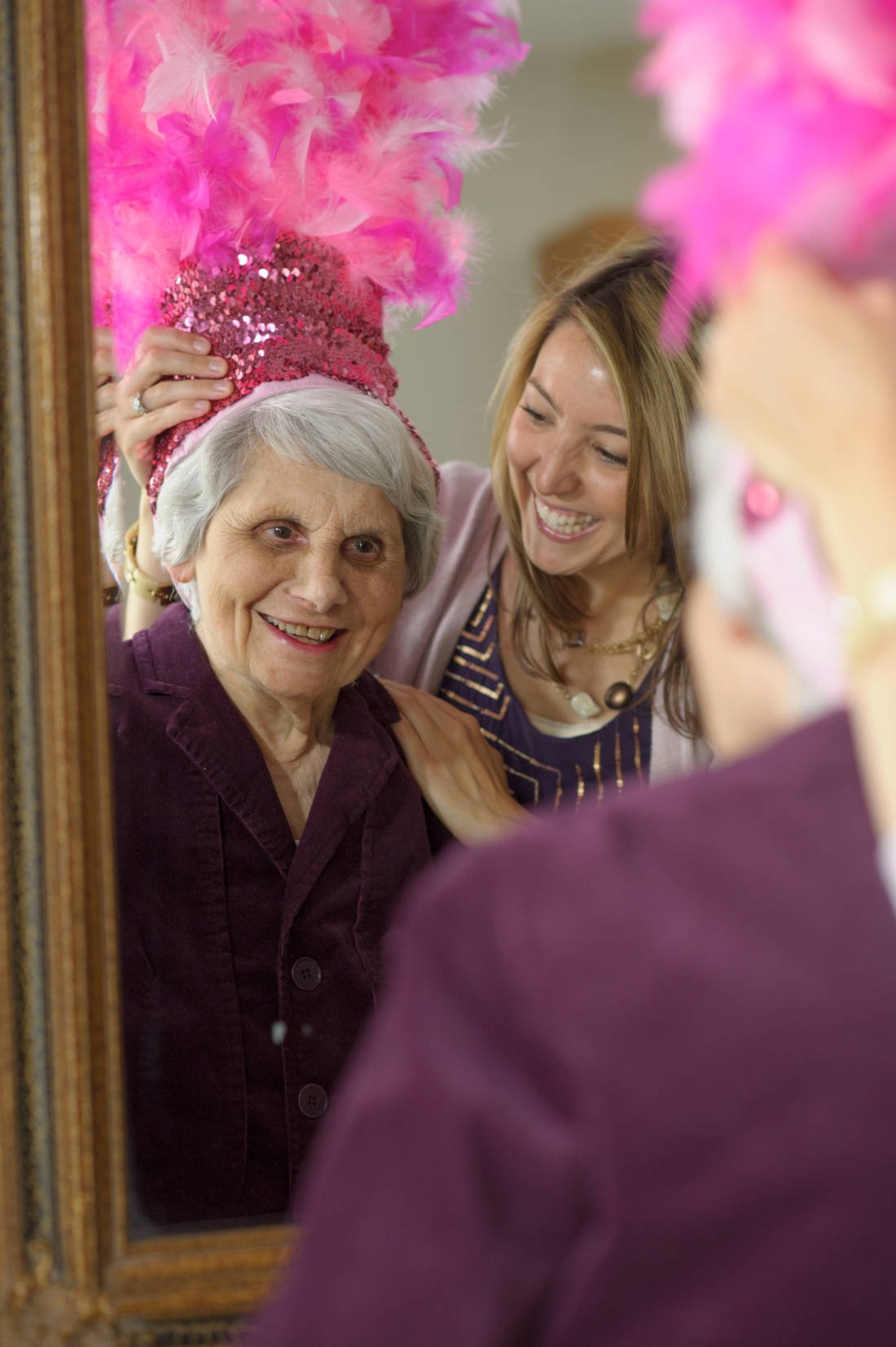 November is Family Stories Month. Interestingly enough, November is also National Lifewriting Month! These two celebrations provide a wealth of opportunities for families to connect with their elderly loved ones.
November is Family Stories Month. Interestingly enough, November is also National Lifewriting Month! These two celebrations provide a wealth of opportunities for families to connect with their elderly loved ones.
So before you leave the table this Thanksgiving (and head out to do all your Black Friday shopping) take a moment to share a story, listen to a story, or write down a few words to remember those stories.
Preserving Life Stories at United Methodist Homes
In our United Methodist Homes communities, we are always discovering amazing new stories about our residents. Many of these stories, or “Firsthand Accounts,” belong to those who enjoy remembering days gone by, those who relish the memories of childhood and beyond, and our Veterans. These stories, when recognized and shared with others, can be an unbelievably meaningful experience for the listener.
While listening to a group of residents reminisce about what life was like when they were children growing up in the area, we realized the importance of honoring our residents’ individual stories. Before long we had discovered and preserved “Firsthand Accounts” from within our community that truly made local history come alive. We now host regular gatherings to discuss different topics of interest from the past, such as “Surviving the Great Depression” or “Raising Children in the 1950’s.” With our residents’ permission, we record these discussions and work with a local historian to archive these personal accounts for future generations.
There are lots of simple things that families can do to preserve the stories of their elderly loved ones. Feel free to try out some of our ideas below:
Interview Your Loved One
Take some time to sit and interview your loved one on a specific topic or memory (such as Pearl Harbor Day, visiting the World Fair, or their wedding day) or a period of time in their life (such as their childhood, their teenage years, or their love story of how they met their spouse). Set a date and time with your loved one (or be spontaneous if they prefer) and offer to write down their story. Bring along a lap top computer, invite them to share their memories, and take some time to type their thoughts into a document or write them down on paper. As you begin to collect memories, compile them together and show your loved one the finished product.
Create a Video History
With today’s technology options, creating a video history that preserves your loved one’s life stories can be a fun and easy task. Using an iphone or an ipad, film your loved one in a favorite spot and invite them to share their memories. They can either begin with their childhood and work their way through their adult years, or they can simply retell (in detail) a piece of their story that family members may not know about, such as their journey to America as an immigrant. Be sure to find a place that offers good lighting and is a quiet location free of competing noise. Try to get as close as possible with the camera for audio purposes and record in segments, which will make it easier for your loved one. You can also gather photos and other memorabilia and incorporate those into the story along with the accounts.
Make a Scrapbook
If you enjoy looking back at memories from the past, a scrapbook is a great way to preserve those memories. Collect photos with your loved one and work together to lay them out in a scrapbook in a way that tells a story. Invite your loved one share a few thoughts for each page and document their life story along with the photos. In this way, you can preserve “snapshots” of memories that capture important moments.
Document Your Loved One’s Veteran History
The Veterans History Project of the American Folklife Center collects, preserves, and makes accessible the personal accounts of American war veterans so that future generations may hear directly from veterans and better understand the realities of war. Visit their website at http://www.loc.gov/vets/about.html to learn more and discover how you can help to collect and document the memories of your loved one. With a few simple steps, you can record important information about their branch of service, length of service, military rank and other details that will shed light on their wartime experience.
Let the story-telling begin!
Whichever option you choose, be sure to practice listening and learn how to ask questions. Being a good listener is the first step in preserving any story. Learning how to ask questions that invite a detailed response will help provoke thought and encourage your loved one to engage their mind. Be patient and understanding when discussing sensitive information but laugh and enjoy the moments of humor and fun. Then, let the story-telling begin!
Key Takeaways
-
Take some time during the holiday season to share stories with a loved one and consider ways that you can preserve their firsthand accounts.
-
United Methodist Homes is proud to help preserve the life stories and firsthand accounts of their residents and regularly invites seniors to share their memories.
-
Consider any one of the following ways to preserve a loved one’s life story: Interview your loved one, create a video history, make a scrapbook, or document a loved one’s veteran history.
-
Be sure to listen, ask questions, and be patient and understanding through the story-telling process…..and enjoy the memories you make together!





 November is Family Stories Month. Interestingly enough, November is also National Lifewriting Month! These two celebrations provide a wealth of opportunities for families to
November is Family Stories Month. Interestingly enough, November is also National Lifewriting Month! These two celebrations provide a wealth of opportunities for families to 